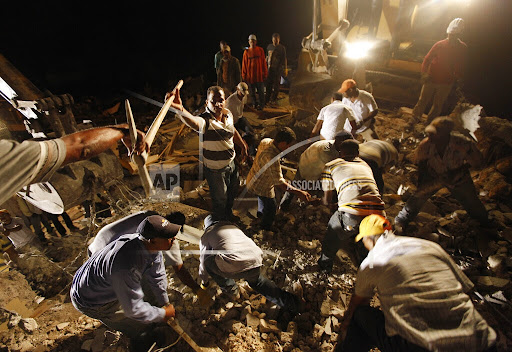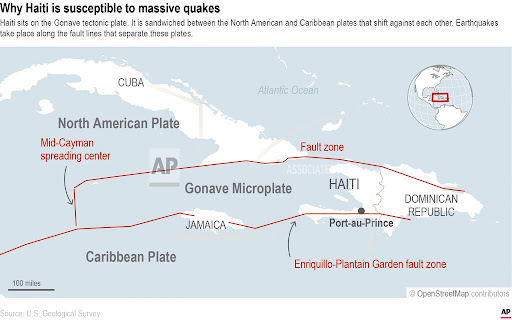It should be no surprise that Haiti is a frequent victim of earthquakes. Just two months ago, Haiti was rocked by a 7.2 magnitude earthquake, causing billions in property damage and left thousands dead. But why is it always Haiti that seems to get earthquakes?

August’s earthquake was the strongest one felt on the island nation since the infamous 2010 earthquake that left hundreds of thousands of people dead. Haiti clearly seems to be a hotspot for frequent earthquakes of deadly size and strength.
Haiti is arguably not even the most iconic earthquake zone in the world. That would be the Ring of Fire, that surrounds the Pacific Ocean, causing frequent earthquakes and tsunamis for the coasts of California, Japan, and more.
But Haiti is far from the Ring of Fire, so why does it receive so many earthquakes? And even then, how does Florida, less than a thousand miles away, never even feel any of it? Spinnaker reached out to Dr. Christopher Baynard, from the Department of Economics and Geography, for qualified insight on these questions.
Baynard explains how a large portion of the Caribbean, including Haiti, is on a singular tectonic plate, like the Ring of Fire. These tectonic plates are sections of the Earth’s crust which combine and collide with each other. These plates build up pressure as they grind together, which when released, can cause earthquakes.

Haiti itself is very close to the fault, or the boundary between the two plates. Florida is never affected because it sits relatively far away on a different plate entirely.
“Florida is pretty stable, we’re not on a fault zone.”
One important thing he said was important was how dozens of earthquakes happen each day around the world, but they are just so small people don’t realize it. It’s only the occasional big one like in Haiti that can cause structural damage.
“We have earthquakes all day long, all over the planet.”
Dr. Baynard also recommended the excellent digital map run by the United States Geological Survey, which shows all the earthquake activity worldwide each day.
___
For more information or news tips, or if you see an error in this story or have any compliments or concerns, contact editor@unfspinnaker.com.

















mark | Oct 19, 2021 at 5:18 am
why does haiti suffer from huge eqs but its neighbour dominican republic gets very little, how so, when they”re both within the same microplate.